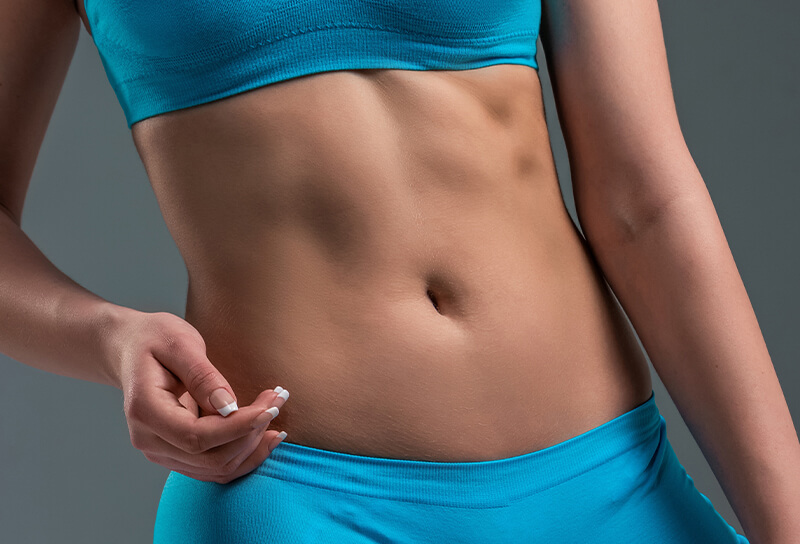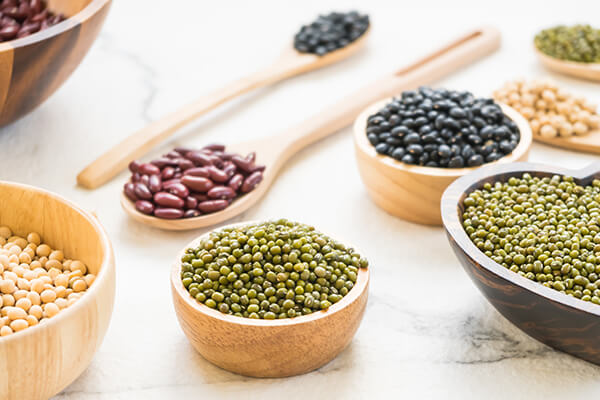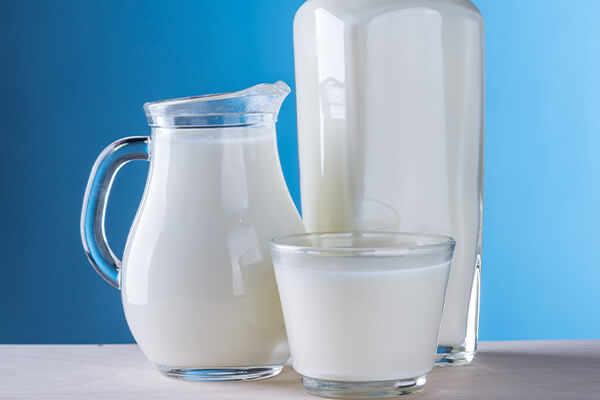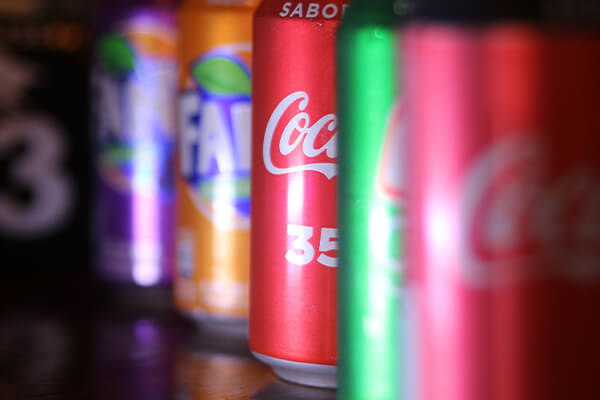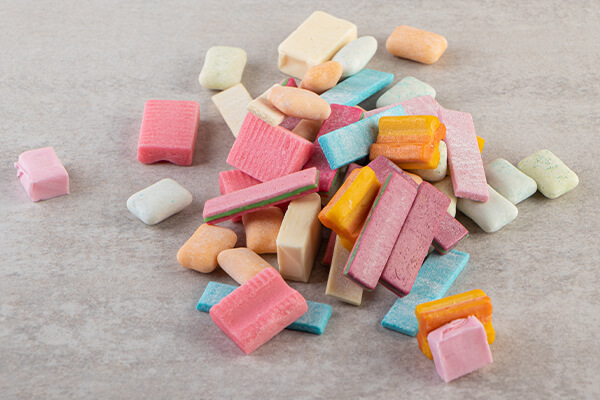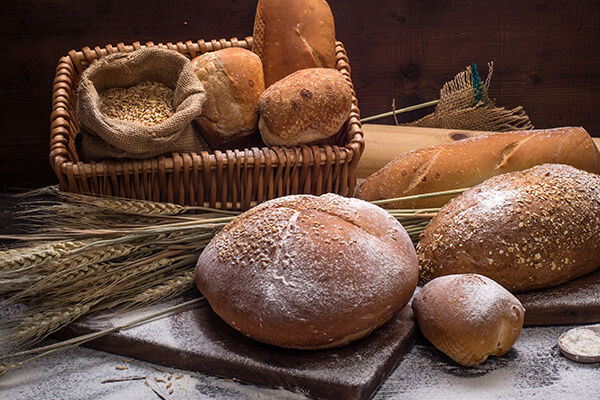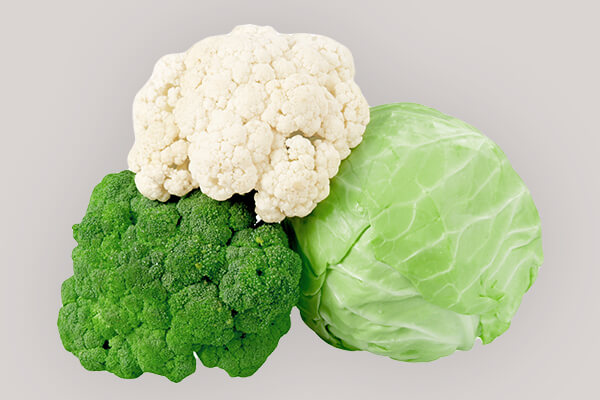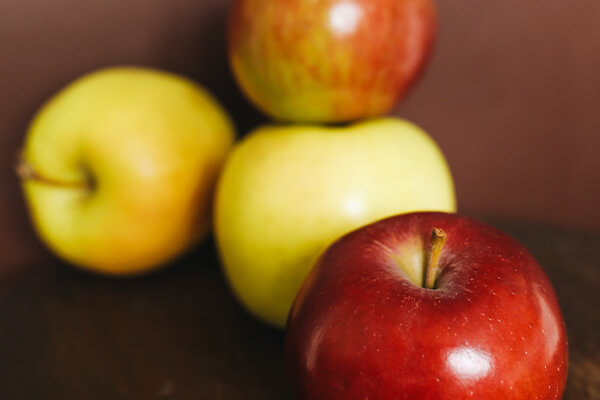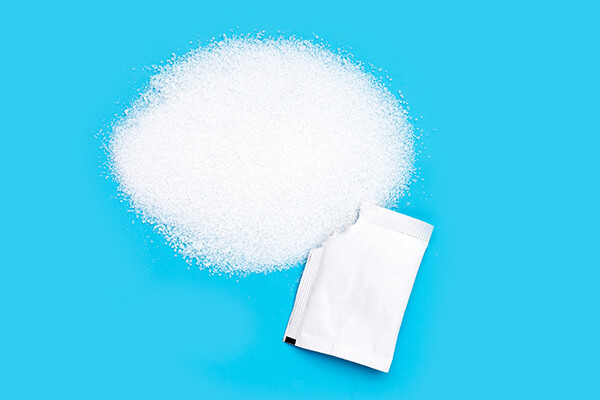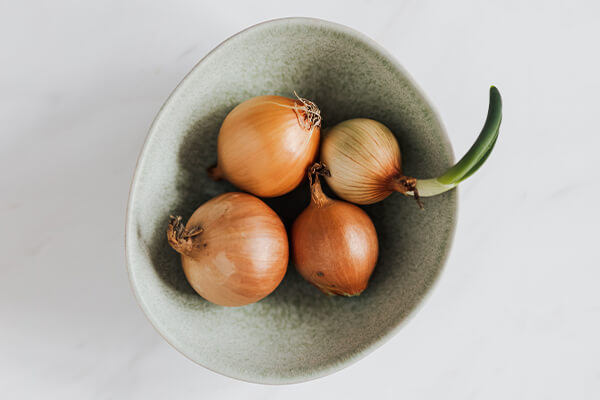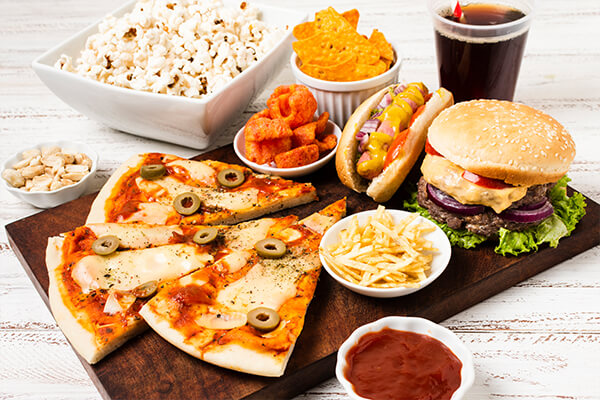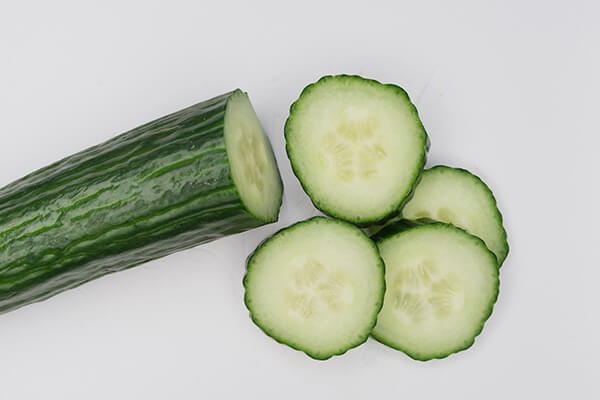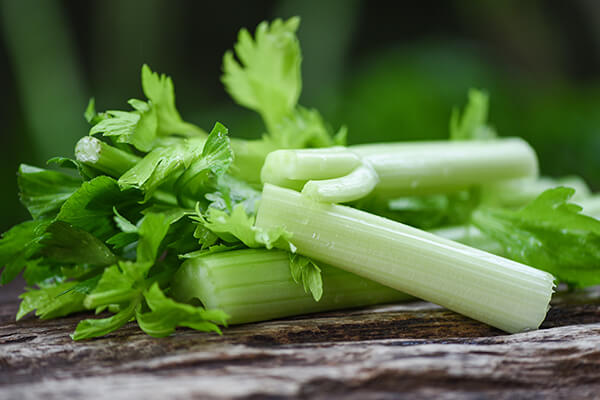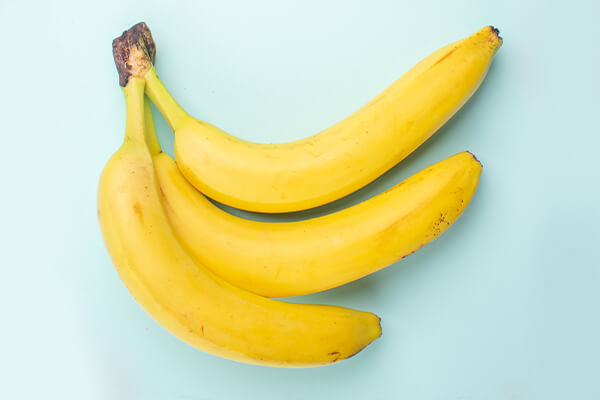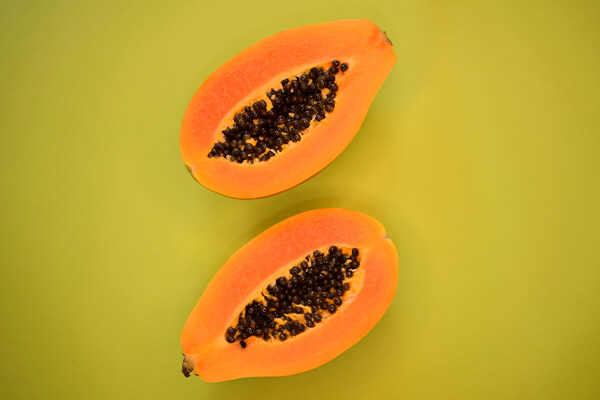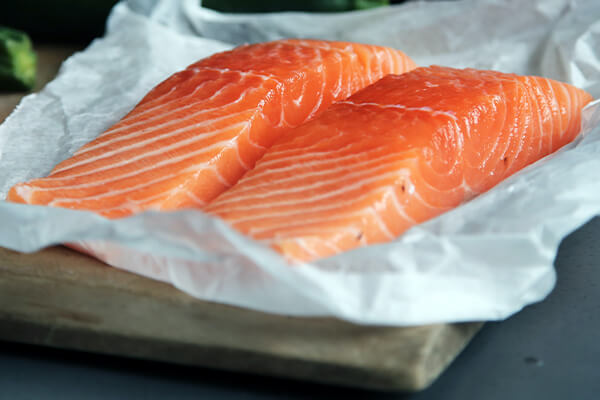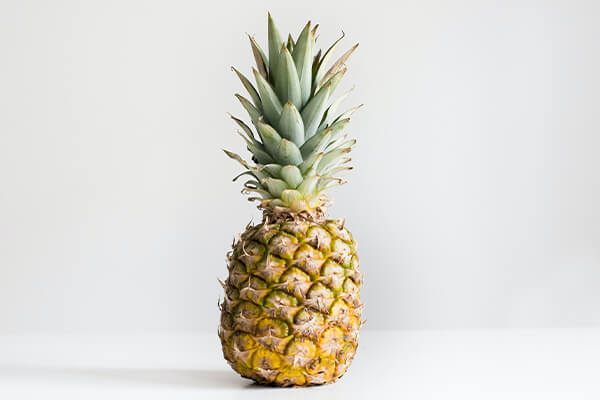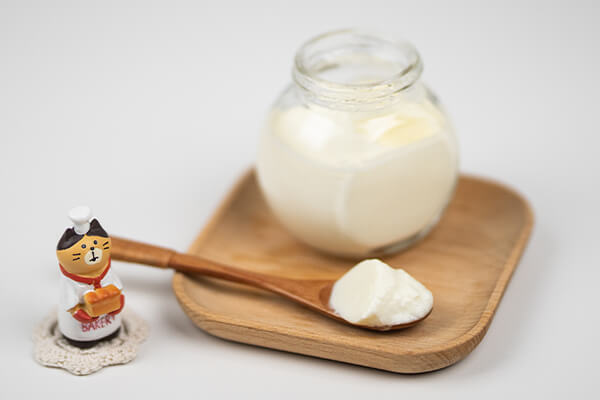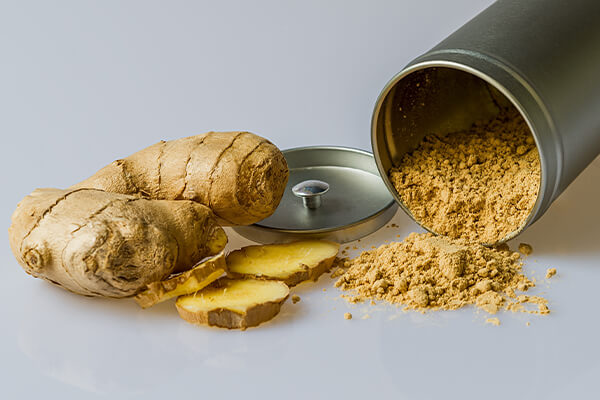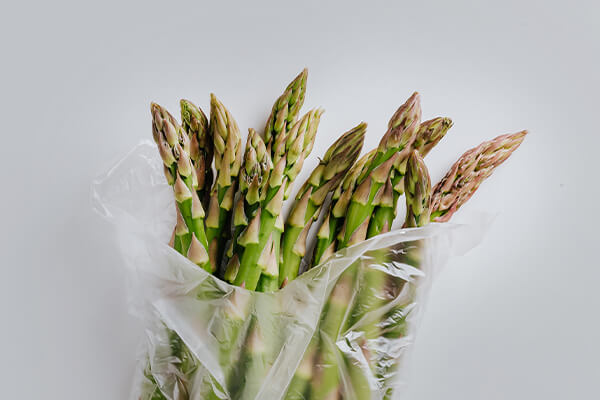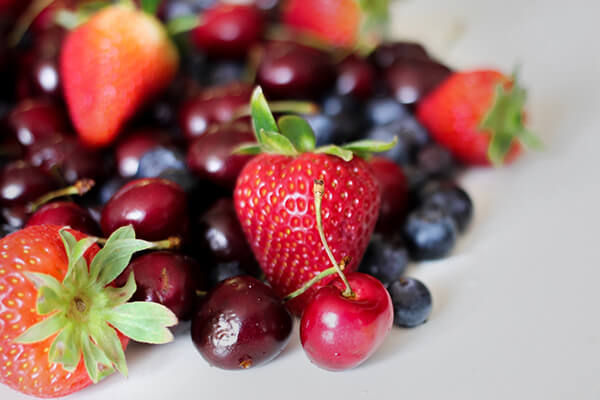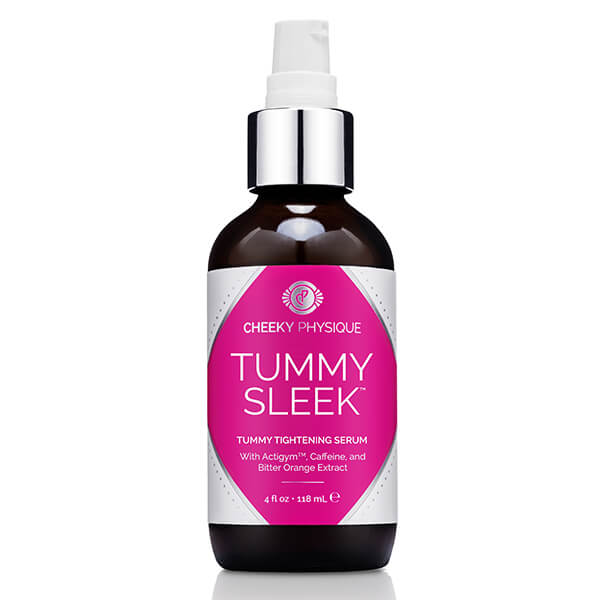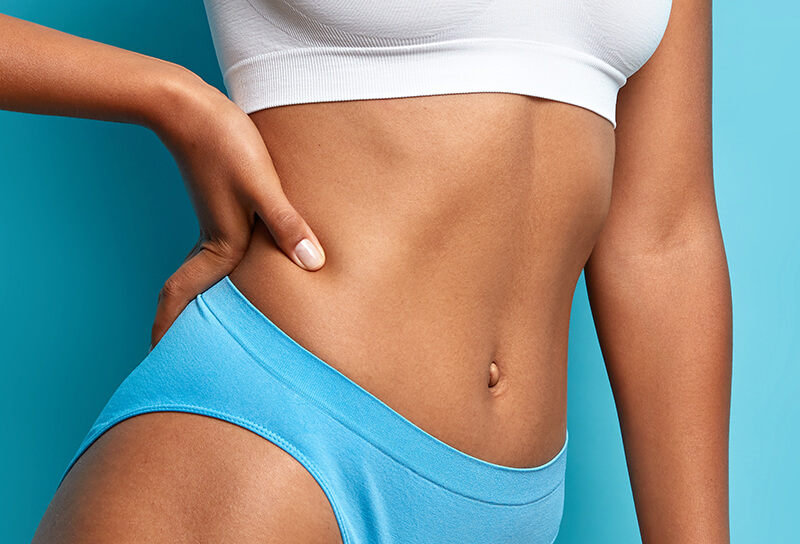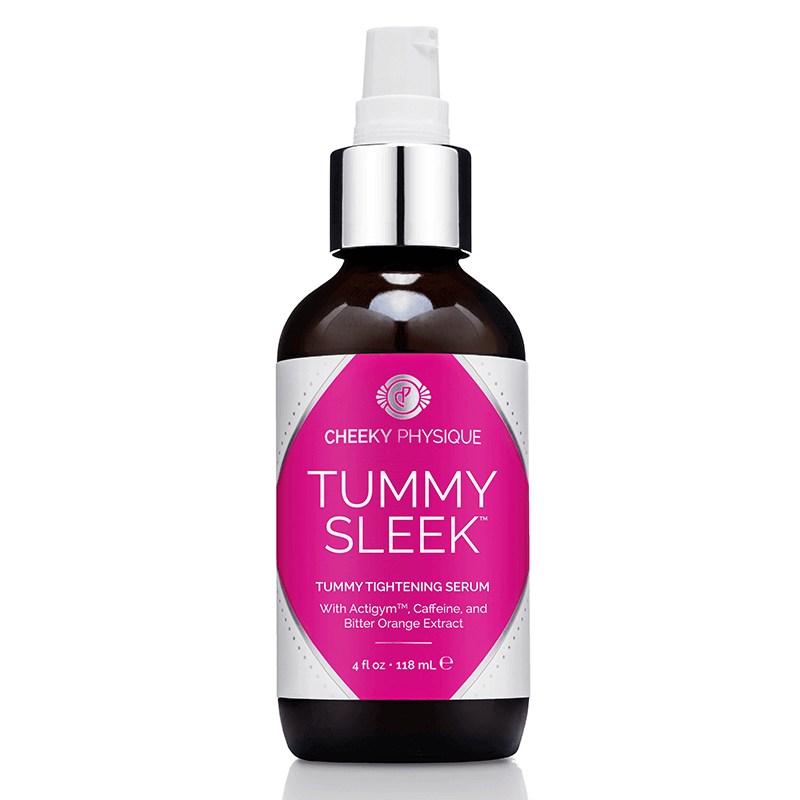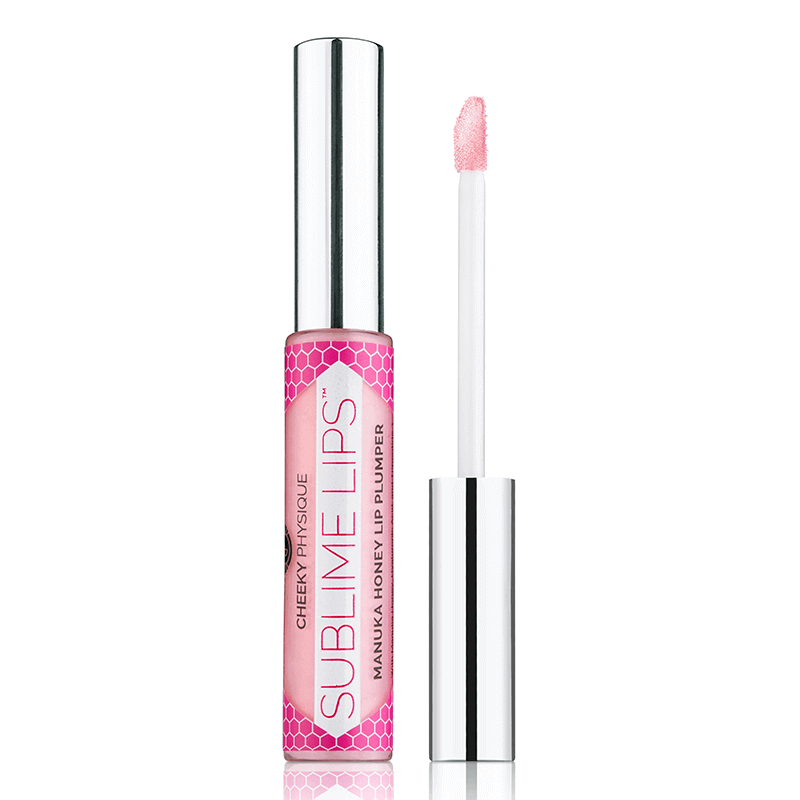This post looks at what to eat to combat belly bloat, foods to avoid that cause bloating, and a 3-step flat belly action plan that’s easy to follow.
Being bloated feels uncomfortable, not to mention that it can also take a toll on your self-confidence. It can add inches to your waistline and pounds to the scale. After all, who wants to walk around with a distended belly!
The worst part of all is that bloating can sometimes come on unexpectedly, even if you are eating so-called healthy foods and doing all the right things.
But did you know that some of the healthiest foods can be the biggest culprits for causing unwanted bloating and gas? And this is especially true if you have a sensitive stomach.
In this article, we share the top 10 foods to avoid that cause bloating, along with some non-bloating alternatives to enjoy instead.
Top 10 Foods to Avoid That Cause Bloating
Beans
Due to their high fiber content and presence of oligosaccharides, which the body may find challenging to break down, beans may cause bloating. Adzuki and mung beans are among the best beans that people can eat instead because they are easier to digest.
It’s important to know that beans are less likely to produce internal gas when digested if they have been soaked before cooking.
Dairy
Dairy is nutrient-dense and a great source of calcium and protein. However, lactose, the sugar present in milk, cannot be broken down by a significant portion of the population. This ailment is referred to as lactose intolerance.
Dairy products can seriously upset your stomach if you have lactose intolerance. Bloating, gas, cramping, and diarrhea are among the symptoms.
Carbonated beverages
Another major cause of bloating is carbonated beverages. These beverages have a lot of the gas carbon dioxide in them. When you consume these drinks, you end up swallowing a significant amount of this gas, which can become trapped and raise stomach pressure.
Unsettling bloating and belching could be the result. Other health problems like diabetes and obesity can also be brought on by excessive consumption of these drinks.
Gum
Chewing gum can cause you to swallow too much air. Additionally, some chewing gums contain sugars that are more difficult to digest, like xylitol, sorbitol, and mannitol.
Wheat
Wheat contains a protein known as gluten, which can result in bloating, diarrhea, gas, and stomach pain. Gluten can be found in bread, pasta, and several other baked goods. A disease known as celiac disease can be the cause of gluten sensitivity.
Cruciferous vegetables
Brussels sprouts, broccoli, cabbage, kale, cauliflower, arugula, and other cruciferous vegetables are among the healthiest foods available. However, eating them in large quantities can result in an accumulation of extra gas and bloating. These vegetables contain raffinose, a sugar that can give you gas.
Apples and pears
Pears and apples are two of the most consumed fruits worldwide. But for some people, they have also been linked to bloating as well as other digestive problems. FODMAP fructose, in addition to the high fiber content of these fruits, are to blame.
FODMAP stands for poorly absorbed sugars in the small intestine (fermentable oligosaccharides, disaccharides, monosaccharides, and polyols). Both fructose and fiber have the potential to ferment in the large intestine, which can result in bloating and gas.
Artificial sweeteners
In sweet foods, beverages, and chewing gum, artificial sweeteners replace sugar. They include, among other things, sorbitol and xylitol.
Experts do not advise using these sweeteners for optimum health because they do not provide any nutritional benefits. Additionally, non-nutritive sweeteners could lead to bloating and gastric issues.
Onions
Onions are one of the main sources of fructans. These soluble fibers have the potential to bloat certain people. Some people are also hypersensitive to other compounds found in onions, particularly raw onions.
Fatty foods
Saturated fat-rich foods typically take a lot longer to digest compared to other foods. This can lead to bloating because these pass through the GI tract more slowly.
Generally speaking, it’s best to keep your daily calorie intake of saturated fat to 10% or less (about 22 grams or 200 calories in a 2,000-calorie diet).
10 Non-Bloating Foods to Eat Instead
Cucumber
Quercetin is a flavonoid that is also present in cucumbers. The strong anti-inflammatory properties of quercetin may help to reduce belly swelling, but additional studies are required to confirm this effect.
Celery
Celery contains a lot of potassium and is primarily made up of water. Potassium supports digestive health. So, celery may help reduce bloating by eliminating extra gas.
Banana
Due to their potassium content, bananas aid in preventing bloating and water retention. Potassium is both a mineral and electrolyte that is crucial for controlling the body’s sodium levels. Consequently, consuming foods high in potassium can aid in reducing water retention.
Papaya
Papain, an enzyme that helps with protein digestion, is found in papaya. Salads benefit greatly from the addition of papaya.
Lean protein
Chicken and fish, two high-protein animal meats, can aid in preventing gas buildup and bloating. In particular, lean proteins instead of high-fat proteins support digestive health in IBS sufferers.
Pineapple
Since tropical fruits like pineapple are mostly water, they help to keep your body hydrated and reduce bloating.
In addition to promoting digestive health, the pineapple enzyme bromelain also aids in breaking down proteins.
Yogurt
Yogurt has a well-established beneficial effect on gut health. Yogurt can lessen bloating because it contains probiotics, which aid in regulating digestion and enhancing general GI health.
When purchasing probiotic-rich foods, pay close attention to the words “live, active cultures” on the label. Additionally, choose plain varieties because added sugar may also cause bloating.
Ginger
Zingibain is an enzyme found in ginger that helps with protein digestion. It is a great addition to soups, salads, and both savory and sweet dishes. Ginger should only be consumed in moderation, and pregnant women and those with ulcerative colitis should take extra care. One gram of fresh ginger is advised daily.
Asparagus
Although eating asparagus can render your urine to smell, there are other associations between the spring vegetable and urine, including the fact that you’ll be urinating more commonly after eating it. This is because the asparagine in asparagus has diuretic properties. Diuretics aid in the removal of salt and water from the body, which may lessen bloating.
Berries
Strawberries, raspberries, grapes, and blueberries are other fruits that are healthy when consumed in moderation. Even though those delicious gems satisfy a sweet tooth, it’s crucial to limit how many you eat.
3-Step Flat Belly Action Plan
Avoiding these belly bloat culprits and eating non-bloating foods is an important step to conquering belly bloat.
If you’re ready to take your flat belly goals to the next level, then it’s important to cover all your bases. That’s why we’ve outlined a simple but effective 3 step flat belly action plan below.
Step 1: Flat belly diet
Eating to lose belly fat isn’t complicated, and we’re sure you already know the basics: eat minimally processed foods, clean proteins, lots of foods and veggies, and avoid junk food.
Beyond that, check out this article to learn about 7 easy and satisfying snacks for belly fat loss.
Step 2: Belly toning workout
Getting the stomach of your dreams means putting in the word. Check out this article featuring 10 ultra-effective workouts to help you flatten your tummy and sculpt your waist.
Step 3: Sleek belly skincare
The last step is to take care of your skin. Yes, the skin on your stomach deserves as much attention as your face, especially if you are troubled by loose skin or stretch marks on the tummy.
Our Tummy Sleek stomach tightening serum is packed with caffeine and circulation-boosting botanical ingredients that help reduce puffiness, firm the look of the belly area, and minimize stretch marks.
Combined with a healthy diet and exercise, it’s your secret weapon for a tighter tummy and an extra boost of confidence. Shop Tummy Sleek now!

